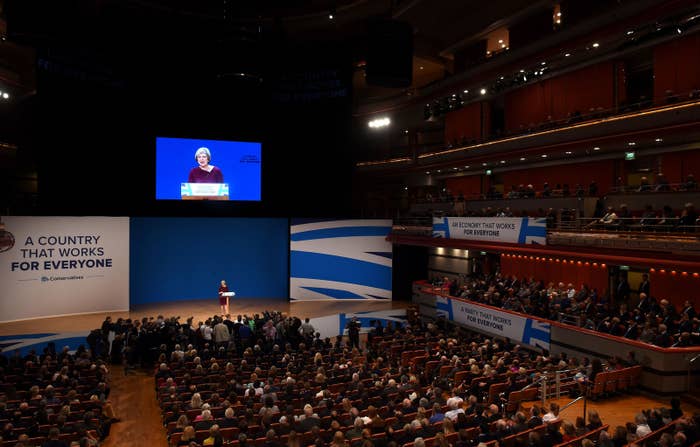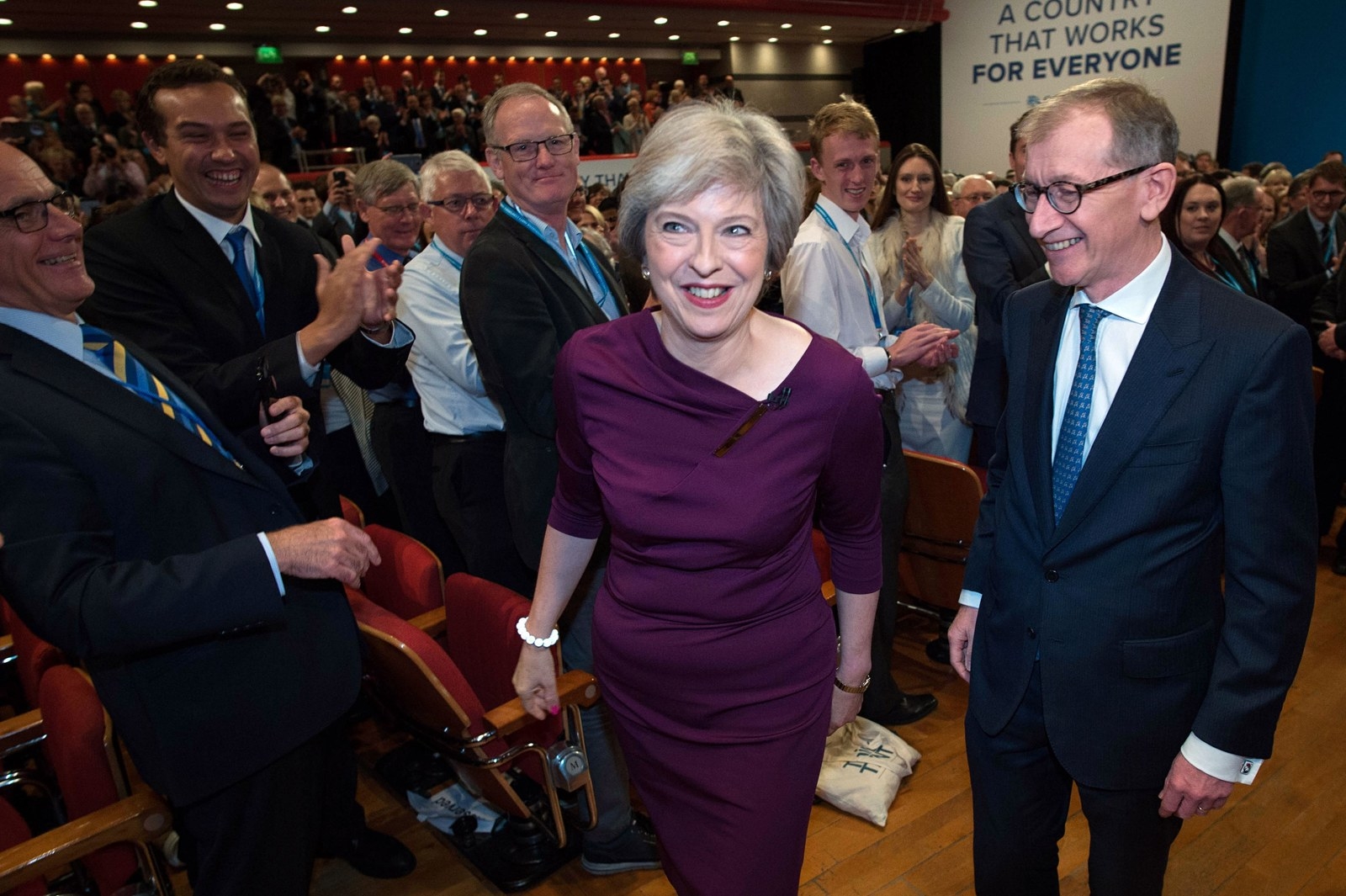
Theresa May has made her pitch for the Tory party to occupy the new centre ground of British politics, mixing market intervention with right-wing populism.
Closing the Conservative conference in Birmingham, the prime minister said the government would reform the country to make it work for ordinary working class families as well as the highest paid executives.
After a conference dominated by talk of a "hard Brexit" and a row over plans for businesses to list the foreign workers they employ, May tried to strike a more optimistic tone.
“I want to set our party and our country on the path towards the new centre ground of British politics – built on the values of fairness and opportunity – where everyone plays by the same rules and where every single person, regardless of their background or that of their parents, is given the chance to be all they want to be," she said.
May said that Brexit represented a "once in a generational chance to change our country for good", not just in terms of regaining sovereignty but ensuring that no one was left behind.
"A country that is prosperous and secure, so every person may share in the wealth of the nation and live their life free from fear," she said. "That’s what I mean by a country that works for everyone."

The PM said people had "suffered" due to previous monetary policies where people with assets had gotten richer due to lower interest rates and quantitative easing.
She said the government would legislate to put consumers and workers on company boards, criticised the fact most energy customers were on the most expensive tariffs, lamented slow rural broadband speeds and pledged a new programme of house-building, as well as pledging to crack down on tax avoidance and invest in infrastructure.
Many of the economic themes were compared to Labour policy under Ed Miliband, in particular on energy prices.
"Where markets are dysfunctional, we should be prepared to intervene," May said in today's speech.
"Where companies are exploiting the failures of the market in which they operate, where consumer choice is inhibited by deliberately complex pricing structures, we must set the market right."
"A change has got to come," May said. "And we are going to deliver it."

The prime minister said Jeremy Corbyn's Labour was "not just divided, but divisive", going on to label them the new "nasty party", mirroring a remark she made about her own party in a speech in 2002.
But her speech also drew applause for condemning "activist, left-wing human rights lawyers" who had pursued cases against UK soldiers who fought in Afghanistan and Iraq.
While May said Britain had to become a country "where it doesn't matter where you were born", she said people who regarded themselves as a "citizen of the world" were in fact a "citizen of nowhere".
These remarks also contrasted very strongly with plans unveiled yesterday by home secretary Amber Rudd for businesses to list the number of foreign workers they employ.
And she reiterated that immigration remained a red line in any Brexit negotiations once Article 50 is triggered before next March, with borders prioritised over remaining within the single market.
Responding to the prime minister's speech, which included a reference to "divisive nationalists", Scotland's first minister Nicola Sturgeon said while May claimed to be seeking the centre ground, "the repellent reality of the policies planned by her party could not be more different."
“Theresa May’s speech comes as the Tories signal they are poised to target foreign workers in the most disgraceful display of reactionary right-wing politics in living memory," Sturgeon said in an emailed statement.
“It is an appalling, regressive, and hugely troubling development which will leave many people in Scotland – and across the rest of the UK and beyond – wondering, with real concern, what kind of country the Tories want us to be."
